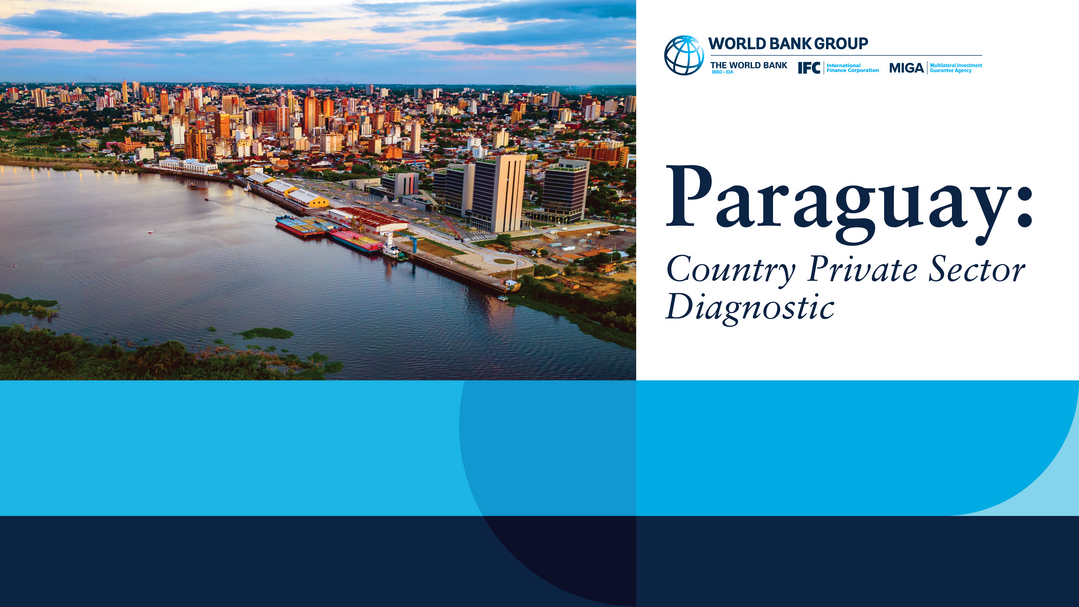
A noteworthy report analyzing Paraguay's potential for sustainable, private sector-led growth has been released. The "Paraguay Country Private Sector Diagnostic" report, based on in-depth data analysis and interviews with various stakeholders, presents specific policy recommendations to create commercially viable investment opportunities for the private sector in the short term.
The report forecasts that if Paraguay implements policy reforms in five key industries – sustainable rice production, sustainable pork production, sustainable forestry, solar power, and textiles and apparel – it could attract up to $3.3 billion (approximately ₩3.6 trillion) in private investment and create over 30,000 new jobs by 2030. This analysis suggests a significant stepping stone for Paraguay's economic diversification and sustainable development.
Rice Industry: The report identifies poor infrastructure, limited access to quality seeds, and insufficient adoption of sustainability standards as factors hindering the growth of Paraguay's rice industry. It recommends that the government enhance the investment attractiveness and sustainability of the rice industry by improving farm access to transportation infrastructure, introducing a sustainability certification system, and supporting the development of new rice varieties. Furthermore, supporting the adoption of smart farming technologies to improve agricultural productivity and establishing quality control and marketing strategies to expand export markets are highlighted as important tasks.
Pork Industry: In the sustainable pork production sector, inadequate hygiene standards, limited infrastructure, and environmental issues are analyzed as major obstacles to private investment. The report emphasizes that the government can improve the investment environment by accelerating the implementation of a "compartments strategy" for biosecurity, strengthening regulatory capacity, and improving road infrastructure. Additionally, the development of support policies to meet international animal welfare standards and establish eco-friendly pig farming systems is deemed urgent.
Forestry: The forestry sector faces challenges in attracting investment due to land ownership issues, complex environmental permitting procedures, and high logistics costs. The report suggests that establishing a modern land information system, revising environmental impact assessment standards, and implementing a national biomass certification program can simultaneously boost investment and sustainability in this sector. Moreover, strengthening surveillance systems to prevent illegal logging and protect forests, along with supporting research and development for high-value-added wood products, are identified as necessary.
Solar Power: Investment constraints in the solar power sector include underinvestment in the energy grid, financial soundness issues of public utilities, and an uncertain regulatory environment. The report proposes that the government can stimulate investment by ensuring the economic feasibility of long-term power purchase agreements, allowing private investment in the energy grid, and clarifying grid access conditions for private investors. Supporting the establishment of distributed power generation systems and developing policies for the adoption of smart grid technologies are also emphasized as crucial tasks.
Textiles and Apparel: Additional private investment in the textiles and apparel industry is hindered by a shortage of skilled labor, limited access to capital for production expansion, customs delays at borders, and poor transportation infrastructure. The report analyzes that the government can attract investment by simplifying trade and customs regulations and implementing measures to facilitate factoring for companies' working capital. Furthermore, expanding technical education and training programs and supporting the enhancement of design capabilities are identified as necessary to strengthen the competitiveness of the textile industry.
The report indicates that Paraguay can attract significant private investment and create numerous jobs by actively pursuing policy reforms in these five key industries. If the specific policy recommendations presented in the report are effectively implemented, Paraguay is expected to take a significant step towards achieving sustainable economic growth and social development simultaneously. The Paraguayan government's proactive will and implementation capacity will be crucial variables in its future economic growth.
[Copyright (c) Global Economic Times. All Rights Reserved.]






























